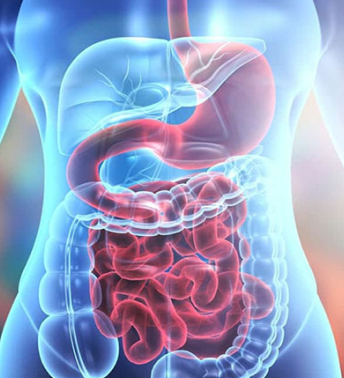Restore Your Gut Health
Key elements we focus on to improve gut health : IBS | SIBO | GERD | Food sensitivities | Crohns | Ulcerative Colitis | Celiac disease
“All disease starts in the gut” – Hippocrates
Did you know 70% of our immune system is located in our gut?
An unhealthy balance in our gut microbiome (more bad bacteria than good) can wreak havoc on our health.
In our practice, we often see the following symptoms with poor gut health:
Gas/Bloating
Diarrhea/Constipation
Weight Gain
Lethargy
Joint Pain
Weakened Immune System
Mood Disorders
Skin Conditions
Chronic Fatigue
Sugar Cravings
Brain Fog
Frequent Sickness
Unfortunately, the solution isn’t as simple as taking probiotics as perceived and a go-to gut health quick fix option!
What is gut health?
Gut health refers to the overall health of your digestive system, particularly the balance of microorganisms inside your gut, which is also known as your gut microbiome. This microbiome is a complex ecosystem of trillions of bacteria, viruses, and fungi that reside in your intestines. These microbes play an important role in many bodily functions, including digestion, nutrient absorption, immune function, and even mental health.
A healthy gut essentially means having a good balance of various types of “good bacteria” which are aiding in breaking down food, producing vitamins and keeping the “bad bacteria” in control.
A healthy Microbiome = A healthier You
Multiple studies confirm that optimal gut health is the key to optimal digestion, metabolic, and immune function.
Dr. Jason Hawrelak, my grad school professor, sparked my passion for gut health when he taught me how prebiotics and probiotics can be used to modify the microbiome and treat all gastrointestinal disorders and imbalances.
I believe and follow The 5R Framework for Gut Restoration
If you want to boost immunity, look to the gut.
If you want to boost metabolism, look to the gut.
If you want to balance hormones, look to the gut.
If you want better brain health, look to the gut.
If you want a better mood, look to the gut.
When our gut health is compromised, it opens doors to many chronic diseases. But the good news is that when the gut is rebalanced, the disease can be reversed too! Hence the 5R framework for a HEALTHIER GUT!

Heal Leaky gut
Leaky gut, which is also known as leaky gut syndrome (LGS), is a condition where the lining of the small intestine gets damaged and allows for particles like undigested food and toxins to leak into the bloodstream.
Leaky gut syndrome symptoms:
- Gas
- Bloating
- Constipation
- Abdominal pain
- Skin problems
- Fatigue
- Food sensitivities
How to Improve Gut health?
There are many things you can do to improve gut health, such as eating a healthy diet, getting enough sleep, and managing stress levels. Consuming a diet that is rich in fiber, probiotics, and prebiotics can help to promote the growth of good bacteria in your gut. Fiber is found in fruits, vegetables, and whole grains. Probiotics are live bacteria that are found in fermented foods such as yogurt, kimchi, and sauerkraut. Prebiotics are a type of fiber that feeds the good bacteria in your gut.
Foods that improve Gut health
- High fiber foods
- Fruits include berries, apples, pears and citrus fruits.
- Vegetables which include leafy greens, sweet potatoes and brussel sprouts.
- Whole grains such as oats, quinoa, brown rice and barley.
- Legumes such as beans,lentils and chickpeas.
- Fermented foods
- Yogurt
- Kimchi
- Kefir
- Sauerkraut
- Kombucha
- Prebiotics
- Chicory
- Artichokes
- Garlic
- Onions
- Other types of foods include
- Fatty fish
- Bone broth
- Extra virgin oil
Significance of Gut health and bloating
Gut health and bloating are closely interlinked. With a healthy gut, and a good balance of bacteria, bloating can be controlled significantly. Imbalance gut microbiome can lead to gas production, constipation and other digestive issues that lead to bloating.
The main steps we recommend to take to avoid bloating are:
- Eating a healthy diet rich in probiotics and prebiotics that can improve good gut bacteria. Also adding high fiber foods in your diet can help greatly.
- Managing stress levels through healthy ways such as yoga, meditation, etc can be beneficial.Sleeping adequately for at least 7-8 hours is crucial.
- Consider using probiotic supplements which can improve the balance of gut bacteria.
However, if bloating still persist or is seen very frequently, it is advisable to consult a doctor to rule out any severe medical conditions.
Significance of Gut health and mental health
There is known to be a complex 2 way communication between the gut and the brain which is also referred to as the gut-brain axis. This is the result of trillions of microbes in your gut microbiome, the vagus nerve, hormones and immune system messengers.A healthy gut microbiome is crucial for sending neurotransmitters such as serotonin, dopamine etc which all play a very important role in sleep, and cognition. An imbalance in gut microbiome can severely impact his.
